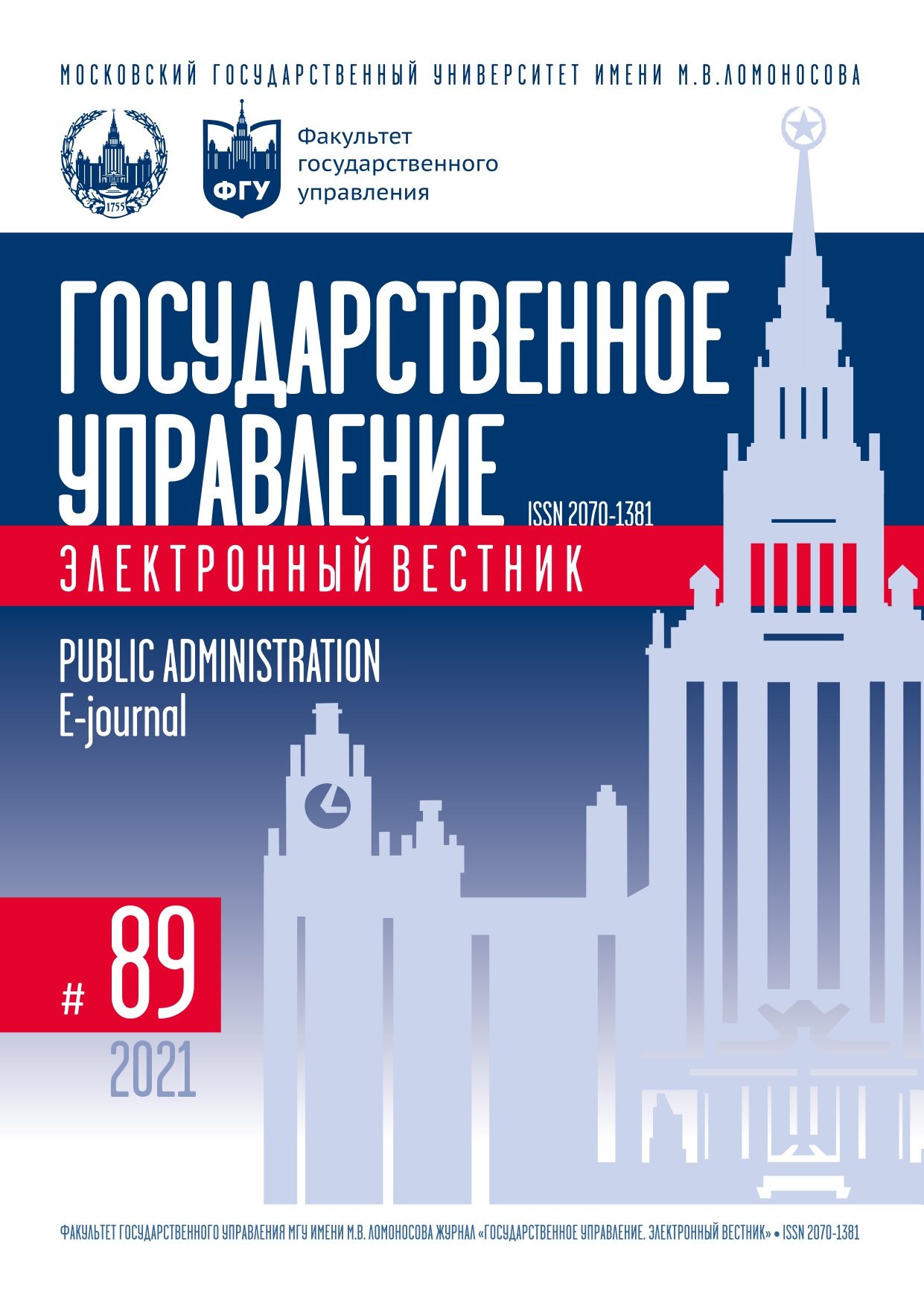Human Potential and Prospects for Education Development
Keywords:
Human potential, education policy, legislative innovations, new professions and competence, creativity, education systemAbstract
Among the factors influencing economic growth, a prominent role is assigned to education. In different countries of the world, there are differences in approaches to the organization and management of educational activities. The purpose of the article is to search for means and tools of educational policy that contribute to the accumulation of human potential. During the interdisciplinary research, the works of Russian and foreign scientists were used. Dialectical and civilizational approaches, methods of induction and deduction, content analysis, logical comparisons, expert assessments were applied. The study established that the key characteristic of human potential is education (formal, non-formal, informal); that in the context of global changes, the qualitative characteristics of human potential largely determine the position of states in the world arena; at the forefront are countries and economic entities that have competitive advantages, achieve the greatest economic results because of the effective use of the human factor. The influence of secondary vocational and higher education on the competitiveness of the national economy has been substantiated. The fairness of the policy “education throughout life”, which implies the constant accumulation of human capital through the systematic application of various forms of training and advanced training, mastering new professions and competencies has been proven. Conclusions about the timeliness of introducing innovative forms of obtaining knowledge at different levels of vocational education, the result of which will be an improvement in providing post-industrial society with qualified specialists in the areas and training profiles demanded by the market are made. It is advisable to devote further research to the study of innovative forms of training for students of professional educational programs to maximize the availability of workers with required professions and qualifications for the needs of a socially oriented economy and society
References
Акаев А.A., Десятко Д.Н., Петряков А.А., Сарыгулов А.И. Региональное развитие и система образования в условиях цифровой трансформации // Экономика региона. 2020. Т. 16. № 4. С. 1031–1045. DOI: https://doi.org/10.17059/ekon.reg.2020-4-2.
Булина А.О., Мозговая К.А., Пахнин М.А. Человеческий капитал в теории экономического роста: классические модели и новые подходы // Вестник Санкт-Петербургского университета. Экономика. 2020. Т. 36. № 2. С. 163–188. DOI: https://doi.org/10.21638/spbu05.2020.201.
Давыденко В.А., Андрианова Е.В., Ромашкина Г.Ф., Хузяхметов Р.Р. Междисциплинарный контекст изучения человеческого капитала. Программа исследований // Вестник Тюменского государственного университета. Социально-экономические и правовые исследования. 2019. Т. 5. № 4 (20). С. 30–51. DOI: https://doi.org/10.21684/2411-7897-2019-5-4-30-51.
Как сделать образование двигателем социально-экономического развития? / Под ред. Я.И. Кузьминова, И.Д. Фрумина, П.С. Сорокина. Москва: Издательский дом Высшей школы экономики, 2019.
Как увеличить человеческий капитал и его вклад в экономическое и социальное развитие / под ред. Я.И. Кузьминова, Л.Н. Овчаровой, Л.И. Якобсона. М.: Изд. дом Высшей школы экономики, 2018.
Ромашкина Г.Ф., Худякова М.В. Социологический анализ факторов и ресурсов человеческого капитала // Экономические и социальные перемены: факты, тенденции, прогноз. 2020. Т. 13. № 6. С. 232–251. DOI: 10.15838/esc.2020.6.72.14.
Эскиндаров М.А., Грузина Ю.М., Фирсова И.А., Мельничук М.В. Компетенции человеческого капитала в высокотехнологичных и наукоемких отраслях экономики // Экономические и социальные перемены: факты, тенденции, прогноз. 2020. Т. 13. № 6. С. 199–214. DOI: 10.15838/esc.2020.6.72.12.
Andrews M. The Limits of Institutional Reform in Development: Changing Rules for Realistic Solutions. Cambridge: Cambridge University Press, 2013.
Lutz W., Butz W.P., Samir K.C. (eds.). World Population and Human Capital in the Twenty-First Century. Oxford: Oxford University Press, 2017.
Olimpia N. Disparities Regarding Competitiveness, Human Capital and Inclusive Development in the EU: A Cluster Analysis // Annals — Economy Series. 2019. Vol. 1. P. 61–71.
Downloads
Published
How to Cite
Similar Articles
- Vera S. Shkarina, Features of Creative Industries Development in Modern Economic Policy , Public Administration. E-journal (Russia): No. 94 (2022)
- Eugenia V. Andryushina, Prospects for the Formation of Russian-Centric Model of Higher Education , Public Administration. E-journal (Russia): No. 104 (2024)
- Pavel S. Shvyriaev, Staffing in the Field of Information Technology in Russia: Problems and Prospects , Public Administration. E-journal (Russia): No. 97 (2023)
- Igor N. Molchanov, Natalia P. Molchanova, Reproduction of Human Potential in Changing Conditions of Higher Education , Public Administration. E-journal (Russia): No. 92 (2022)
- Nadezhda B. Postike , Post-Soviet Historiography of State Activity in the Field of Agricultural Development in the Russian Empire in the 19th Century , Public Administration. E-journal (Russia): No. 99 (2023)
- Natalia S. Grigorieva, Sergey A. Andrushcov, Alexander V. Zubkov, Polina S. Kulkova, Marina A. Khoroshilova, Impact of Restrictive Measures on Higher Education: Transition to Distance Learning as Assessed by Russian Universities Students , Public Administration. E-journal (Russia): No. 89 (2021)
- Maria V. Pevnaya, Oksana N. Haurylik, Darya V. Minchenko, Legislative Discourse of State Support for Youth Social Initiatives in Russian Federation and Republic of Belarus , Public Administration. E-journal (Russia): No. 105 (2024)
- Elena E. Shestakova, Social Policy for Human Development: World Experience , Public Administration. E-journal (Russia): No. 85 (2021)
- Ekaterina A. Panova, Eugenia V. Andryushina, Social and Labor Conflicts in Modern Russian Society , Public Administration. E-journal (Russia): No. 97 (2023)
- Raisa N. Shpakova, Ilya S. Demakov, Community-Minded Activity as Project Management Aspect: Analysis of Federal Project “Community-Minded Activity” , Public Administration. E-journal (Russia): No. 90 (2022)
You may also start an advanced similarity search for this article.




